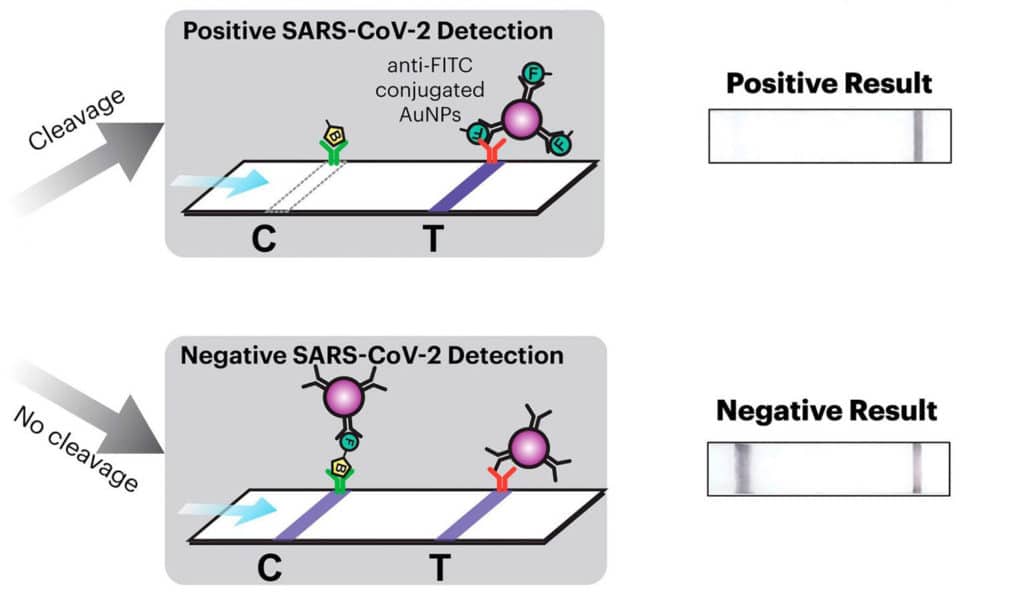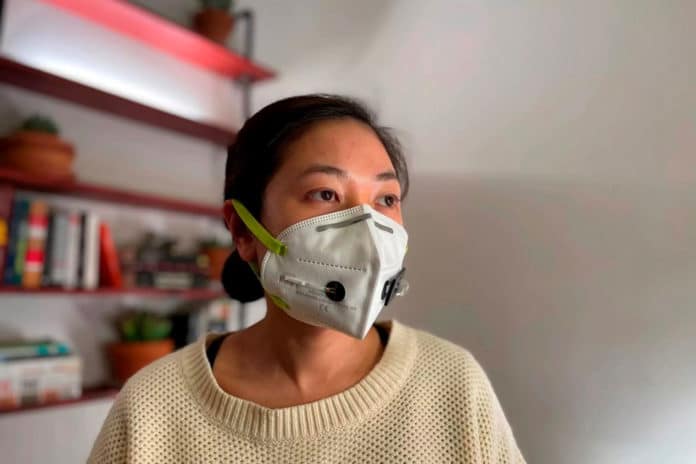A team of engineers at Harvard University and the Massachusetts Institute of Technology (MIT) have designed a novel face mask that can diagnose the wearer with COVID-19 within about 90 minutes.
The button-activated masks are embedded with tiny, disposable biosensors that can be customized to detect pathogens and toxins and alert the wearer. The sensor is small enough to be integrated into clothing fabrics.
The wearable biosensor is based on a new technology dubbed wearable freeze-dried cell-free (wFDCF), which involves extracting and freeze-drying the molecular machinery needed to detect organic molecules. The technology has previously been used to create experimental diagnostic tools for the Ebola and Zika viruses.
“Other groups have created wearables that can sense biomolecules, but those techniques have all required putting living cells into the wearable itself as if the user were wearing a tiny aquarium. If that aquarium ever broke, then the engineered bugs could leak out onto the wearer, and nobody likes that idea,” explains Peter Nguyen, co-first author on the new study.

The face mask includes a small water reservoir that is released at a push of a button when the user is ready to perform the test. This liquid hydrates the freeze-dried components of the SARS-CoV-2 sensor, which analyzes accumulated breath droplets inside the mask and produces a result within 90 minutes.
“We have essentially shrunk an entire diagnostic laboratory down into a small, synthetic biology-based sensor that works with any face mask and combines the high accuracy of PCR tests with the speed and low cost of antigen tests,” said Nguyen.
In the preliminary tests, the face masks have shown levels of accuracy comparable to standard nucleic acid-based diagnostic tests like polymerase chain reactions (PCR), the gold standard for SARS-CoV-2 detection. Engineers say the face mask is the most market-ready product the wFDCF team has developed so far, but the technology offers a huge variety of uses beyond just COVID-19 diagnostics.
“This technology could be incorporated into lab coats for scientists working with hazardous materials or pathogens, scrubs for doctors and nurses, or the uniforms of first responders and military personnel who could be exposed to dangerous pathogens or toxins, such as nerve gas,” said co-author of the study Nina Donghia, a staff scientist at the Wyss Institute.
The team is now looking for manufacturing partners to help mass-produce the face mask and other products into which the technology can be integrated.
